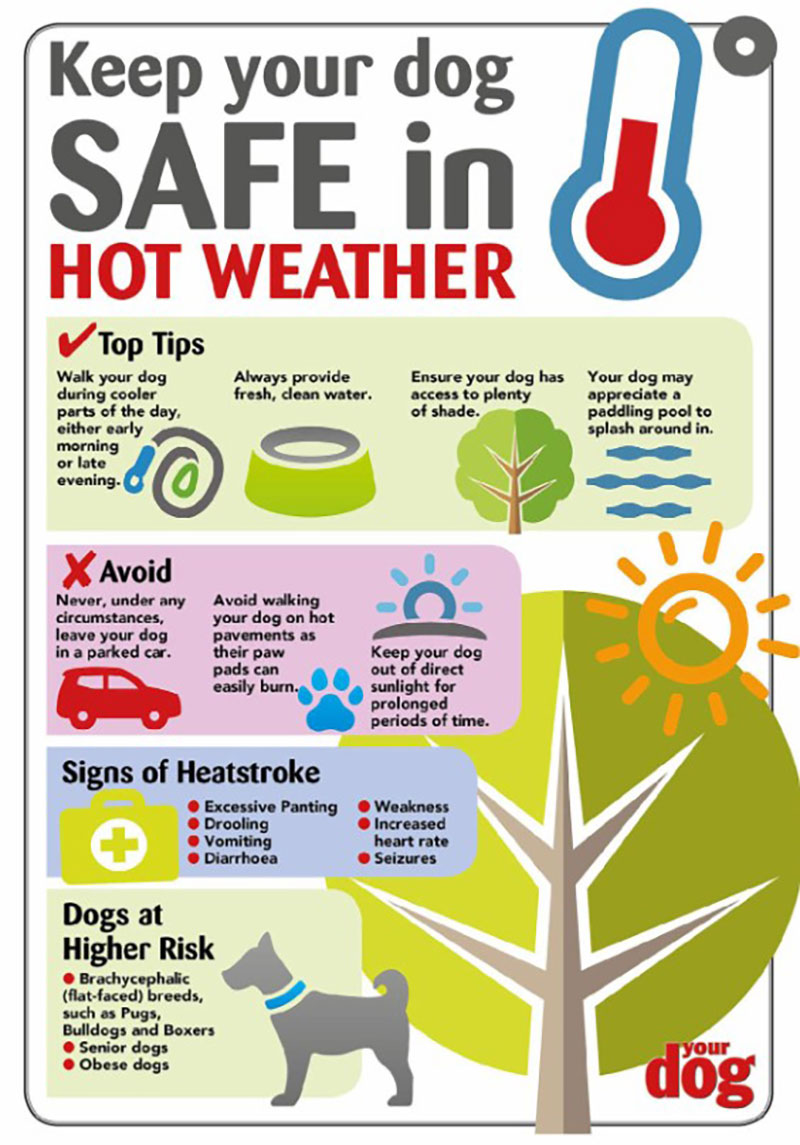As summer heats up, it’s tempting to bring your pet with you on car rides around town. Sadly, many people believe that cracking a window is enough to keep their dogs cool in the car while they make a quick stop—but they couldn’t be more wrong. When it’s 80 degrees outside, your car will be a staggering 114 degrees in less than 30 minutes.
Even in cooler weather, the inside of a car may be as much as 20 degrees hotter than the outdoors—easily reaching 90 degrees on a 70-degree day. A shady parking spot, bowl of water or even an open window are insufficient measures to counteract the deadly effects of these temperatures.
Dogs can’t cool themselves down as easily as people, and once they overheat, they can suffer extensive organ damage or die. In Washington state, it is illegal to “leave or confine any animal unattended in a motor vehicle or enclosed space if the animal could be harmed or killed by exposure to excessive heat, cold, lack of ventilation, or lack of necessary water.”
To help get the word out, we’ve created a hot weather safety graphic, and below are some quick tips for keeping your pets cool and safe.
Quick Tips
- Never leave pets alone in a hot car, as internal temperatures can spike immensely. Even if you have the AC on or a window cracked, pets are at risk of heat stroke or organ failure.
- If you have AC at home, use it! Fans don’t work as well but should be used if you don’t have an air conditioner. Put a bowl of ice behind a fan to blow cool air. You can even set up a “cooling station” in a shady spot with a fan blowing, ice packs, and a bowl of water.
- Ice packs or frozen water bottles are great for your dog to rest on and keep cool. Kid pools are also great for when hot dogs need a dip.
- When going for a walk, be sure to test the temperature of the asphalt, as it can cause real damage to your pet’s feet and will be hotter than the outside temp.
- Flat faced animals such as Pugs and Persians are more susceptible to heat as they can’t pant as effectively. Very young and senior animals, as well as those with heart and lung conditions, are also likely to be more affected.
- Symptoms of overheating include excessive panting, difficulty breathing, increased heart rate, increased respiratory rate, drooling, mild weakness, stupor, collapse, seizures, bloody diarrhea, vomiting and elevated body temperature.
If you see an animal in distress on a hot day, please try to locate the owner or call 911 and stay with the animal until help arrives.

